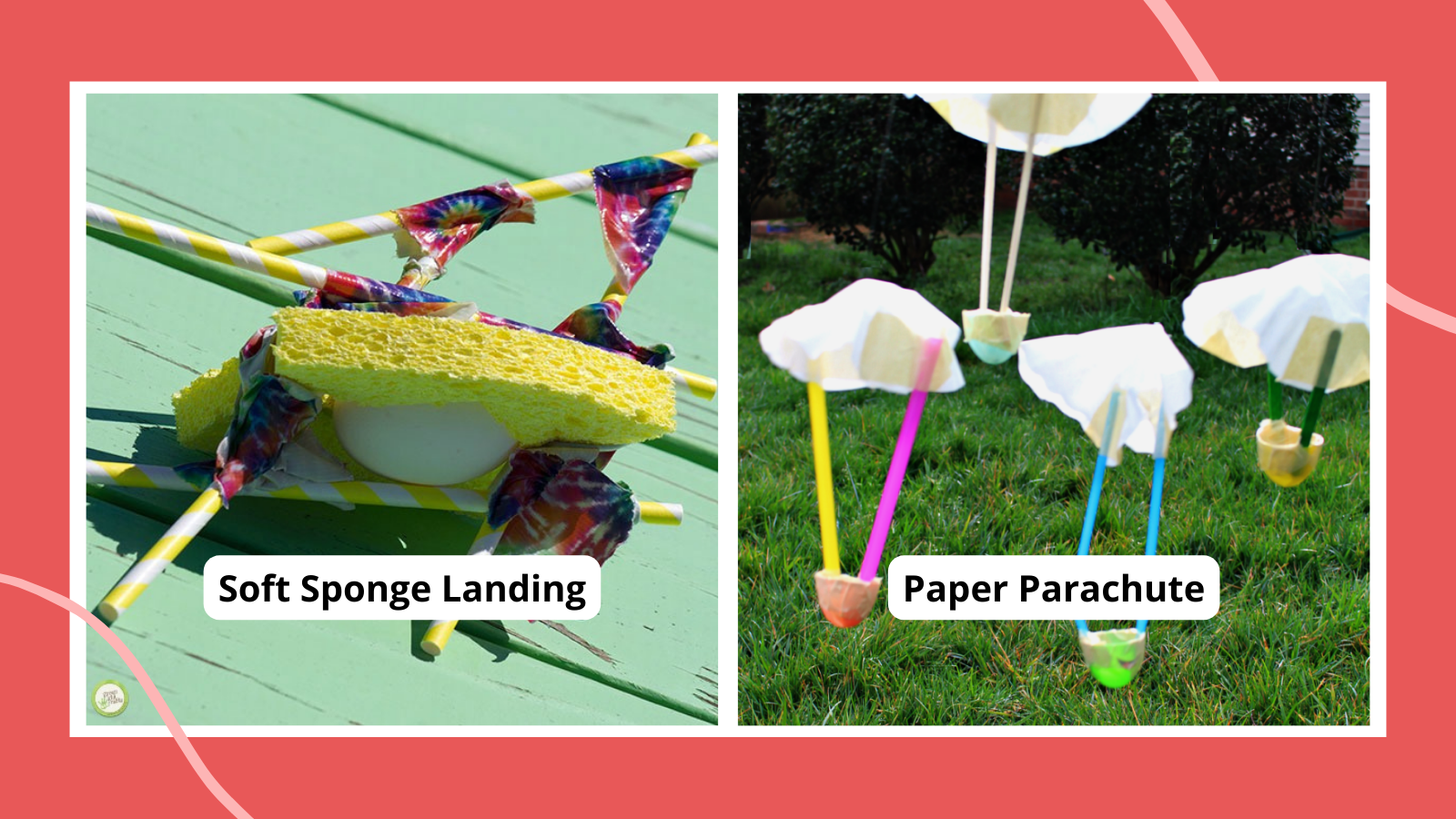The egg drop may be the most versatile activity there is. It can be done in kindergarten to teach about gravity, in middle school to teach engineering, and in high school physics. (We’ve even done the egg drop in professional development as a team-building activity). These 26 egg drop ideas take the challenge far beyond basic.
1. Disaster egg drop
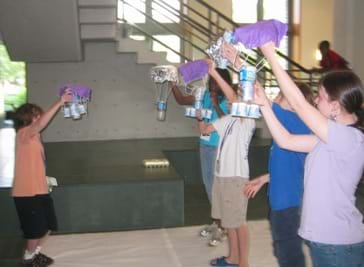
Have students imagine that they are trying to deliver eggs to people who have been in a disaster. They must use contents from care packages to pack and try to deliver their eggs. The focus of this egg drop is on the change from potential to kinetic energy and how energy moves when it impacts the ground.
Try it: Care Package Egg Drop at Teach Engineering
2. Parachute egg drop
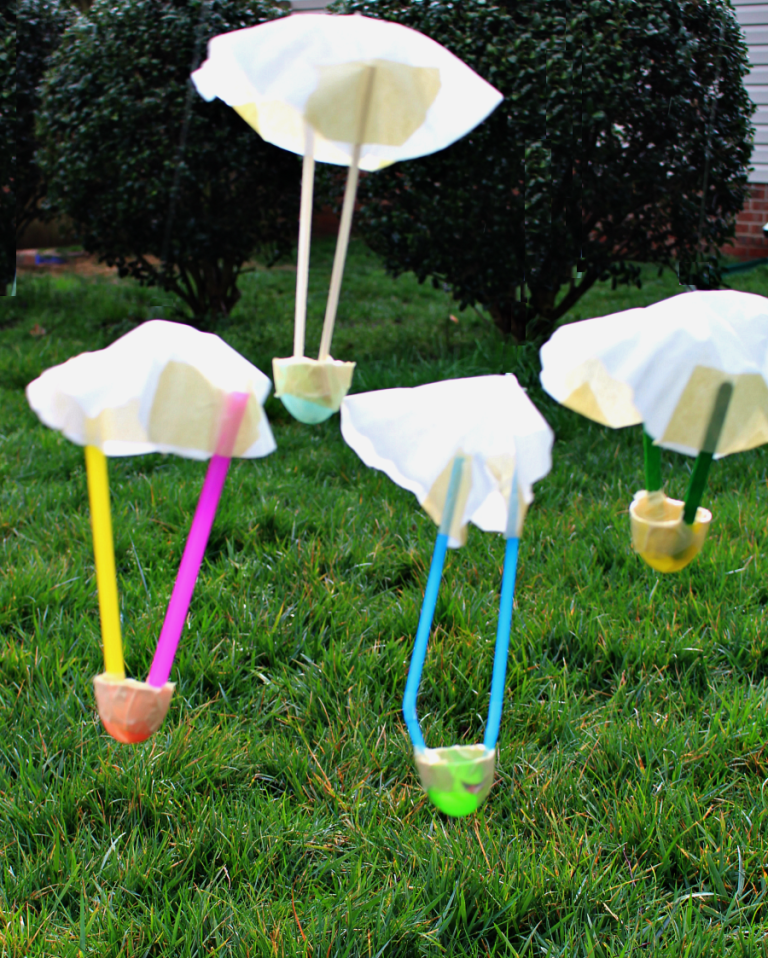
Looking for tried-and-true ideas for the parachute egg drop method? Give students a variety of materials—straws, Popsicle sticks, paper, bags—and see who can make a parachute that helps the egg float instead of splat.
Try it: Egg Parachutes at JDaniels4mom.com
3. Humpty Dumpty drop
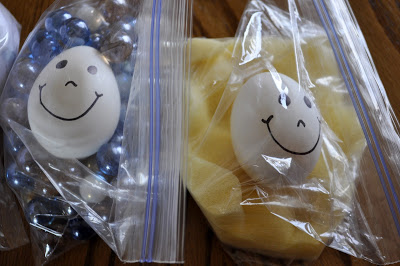
First, decorate an egg like Humpty Dumpty (smiley face, overalls). Then, fill baggies with different materials like water beads, sand, pasta, and cotton balls. Drop Humpty in and see which material protects him the best.
Try it: Humpty Dumpty Drop at I Heart Crafty Things
4. Hot-air balloon egg drop
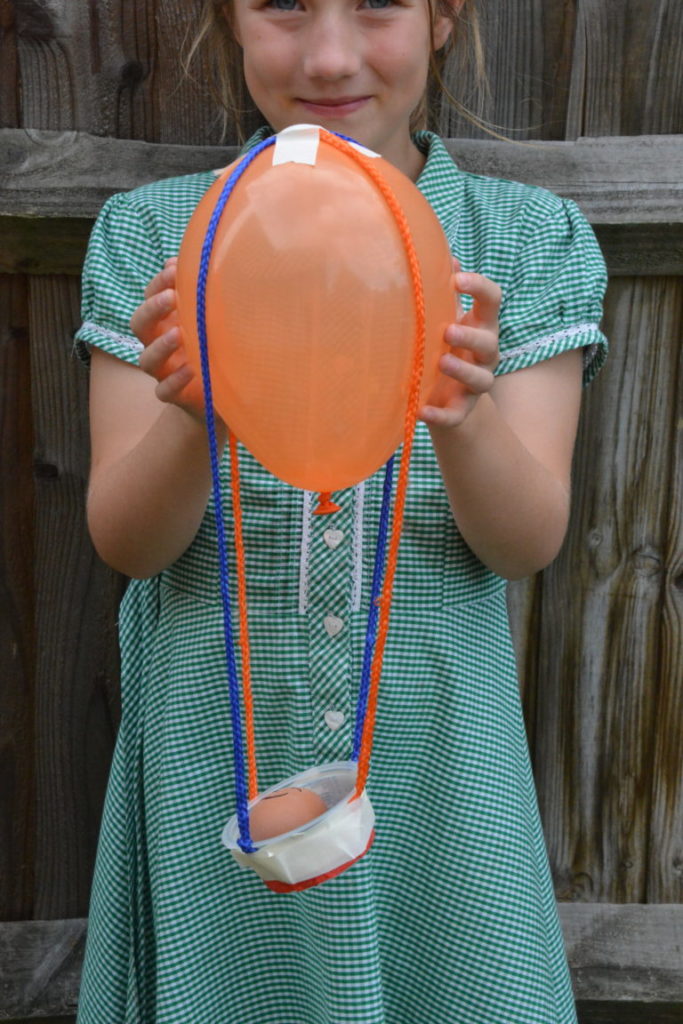
Connect a “basket” to a balloon with yarn and see whether or not the balloon will float gently enough so the egg doesn’t break. You may try this in different types of weather to see what happens to the balloon and egg when it’s windy or not.
Try it: Gravity Drop at Science Sparks
5. Crash cart egg race
In this version of an egg drop, build a cart for an egg, then send each egg down a ramp or course to see if the cart will protect the egg.
6. Cereal egg drop
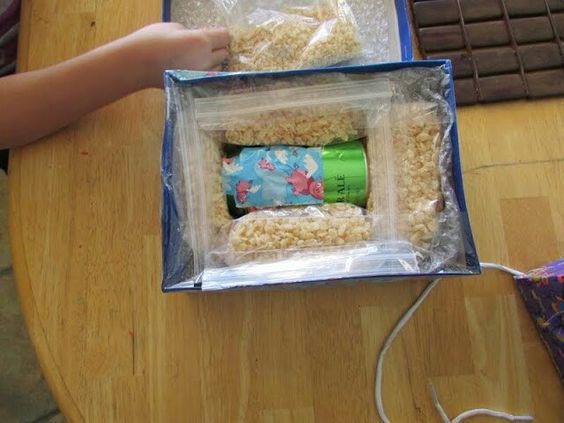
Another lesson in how energy gets absorbed. Place an egg in a can, and surround the can with a soft cereal, like puffed rice.
Try it: Cereal Egg Drop on Pinterest
7. Dodecahedron egg drop
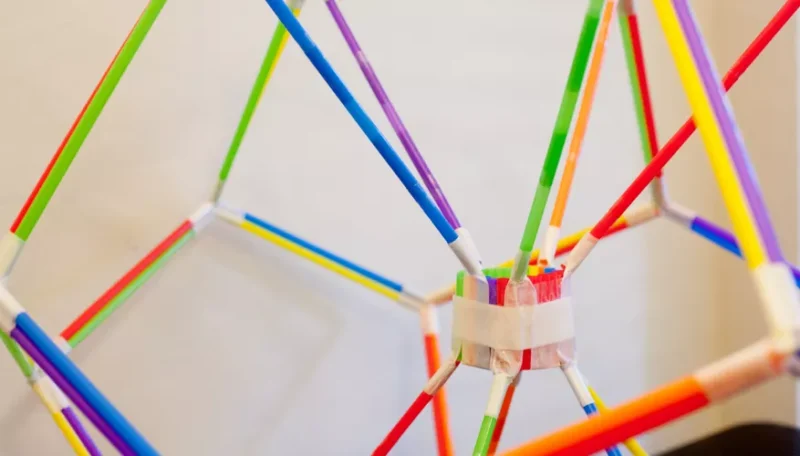
Create a dodecahedron out of straws, place an egg in the middle, and drop it. Will the straw structure protect the egg enough for it not to break? Bonus: Students learn about geometry and dodecahedrons.
Try it: Straw Egg Drop at Sciencing
8. Styrofoam cup egg drop
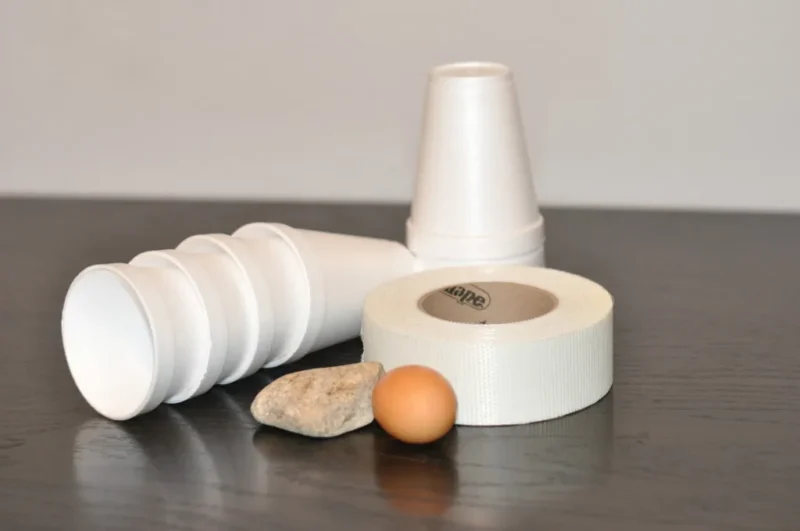
Use Styrofoam cups to create a stack around the egg. Place a heavy rock in the bottom of the first cup (the rock should be heavier than the egg). Then, put six more cups on top, put the egg into the seventh cup, and cover the stack with the eighth. Tape the stack together and drop.
Try it: Styrofoam Egg Drop at Educational Insights
9. Rubber band suspension egg drop
Suspend an egg using rubber bands and pantyhose for protection. Will the egg bounce and wiggle or crack on impact?
10. Paper straws egg drop
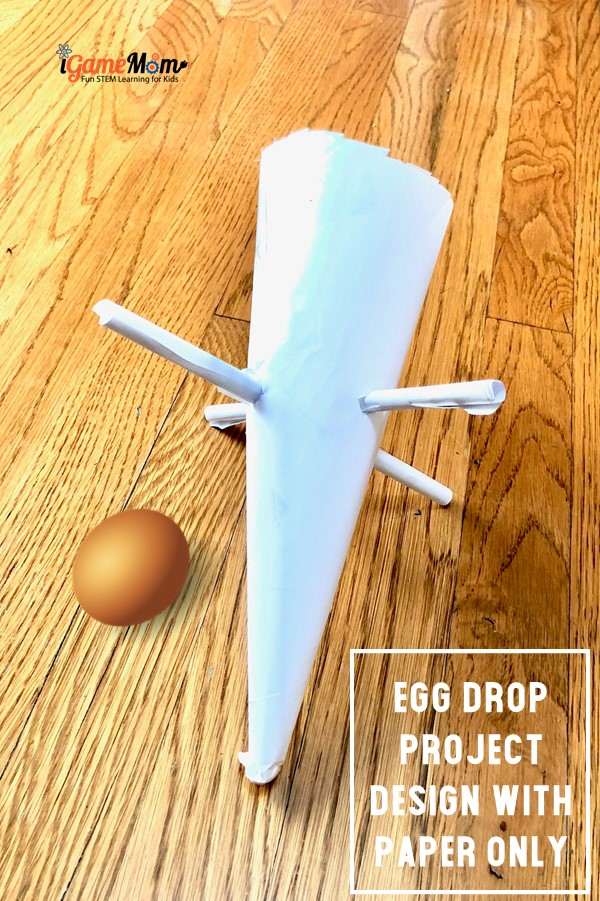
Sometimes having limited materials brings out students’ creativity. Give students nothing but an egg, paper, and scissors, and see what they can come up with.
Try it: Paper Egg Drop at iGameMom
11. Pringles can egg drop
A Pringles can is the perfect size and shape to protect an egg. Use cushioning and pencils to hold the egg in place.
12. Sponge egg drop
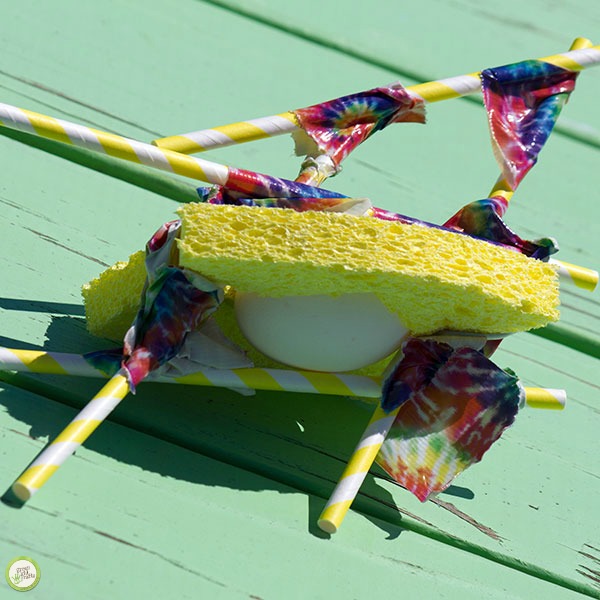
Cut a hole in the middle of a sponge and fit the egg into the hole. Then, use straws and tape to secure the egg and see if the sponge will soften the blow.
Try it: Sponge Egg Drop at Green Kid Crafts
13. Paper bag parachute
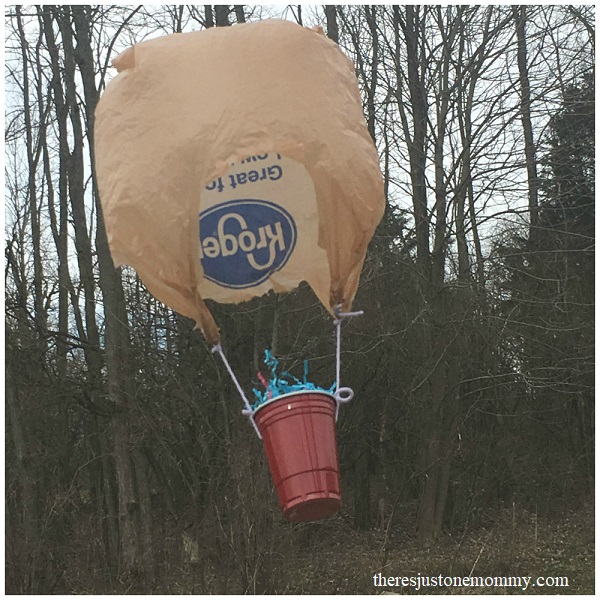
Looking for more ideas that incorporate parachutes in your egg drop challenge? Place the egg in a red Solo cup with some cushioning (shredded paper, cotton). Then, attach a plastic bag to the cup and launch it in a place where the wind can catch the bag.
Try it: Plastic Bag Parachute Egg Drop at There’s Just One Mommy
14. Toilet paper and duct tape egg drop
Tuck an egg into a roll of toilet paper, pack with cotton balls, and cover with duct tape. You could use this strategy to drop the egg, or roll it down an obstacle course.
15. Oobleck-wrapped egg challenge
For a mult-step approach, make oobleck and cover the egg in oobleck. Then, put the egg in a cup that includes a soft packing material (mini-marshmallows, cotton balls). Cover the top with plastic wrap or tape and get ready to drop.
16. Ship egg drop
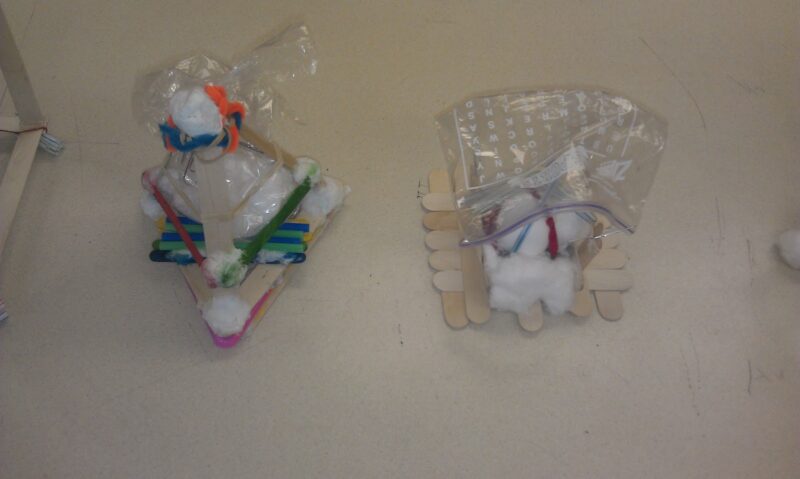
Give students a collection of materials and challenge them to make ships to protect their eggs. Some materials:
- Popsicle sticks or tongue depressors
- Straws
- Rubber bands
- Pipe cleaners
- Yarn
- Cotton balls
- Sandwich bags
Try it: Ship Egg Drop at Cool Science Dad
17. Pool noodle egg drop
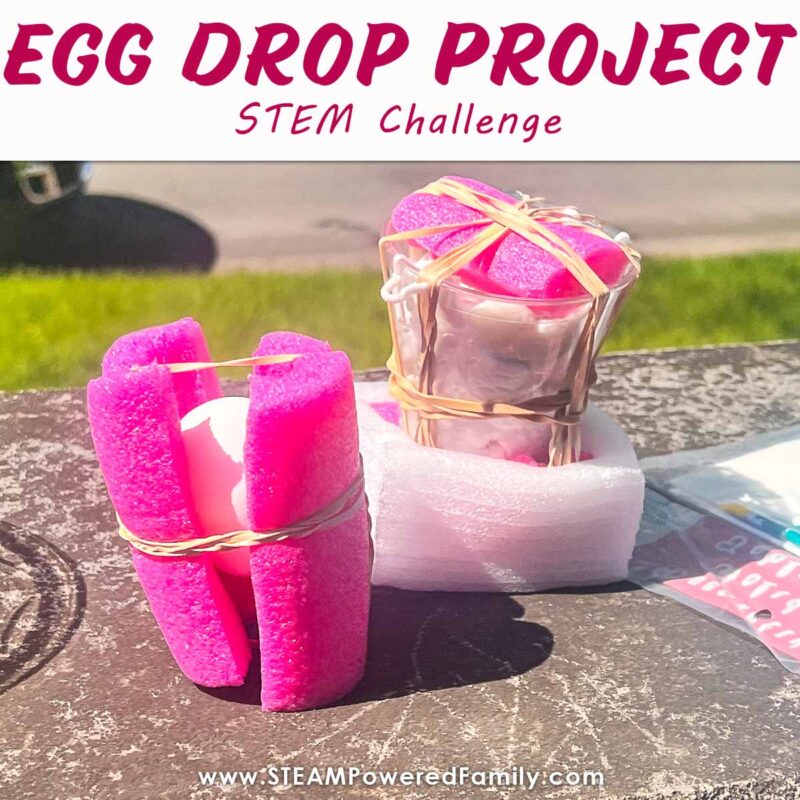
What can’t you do with pool noodles? Cut pool noodles into parts and use duct tape, rubber bands, and other materials to create soft, spongy pods for eggs.
Try it: Pool Noodle Egg Drop at Steam Powered Family
18. Toilet paper roll egg drop
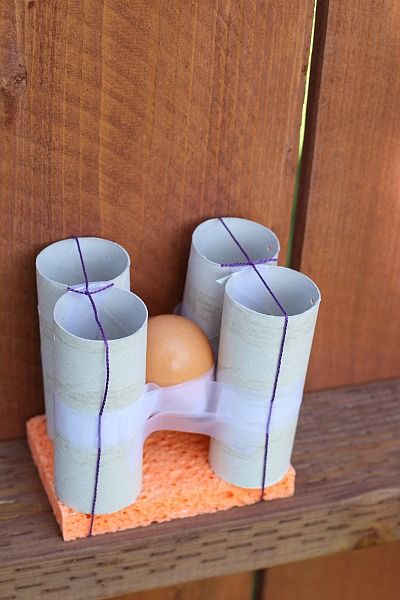
Use toilet paper rolls as pillars to support and protect an egg, then use a sponge and rubber bands to hold it together. The big question with this egg drop is whether it will float down or crash.
Try it: Toilet Paper Egg Drop at Science Struck
19. Water bag egg drop
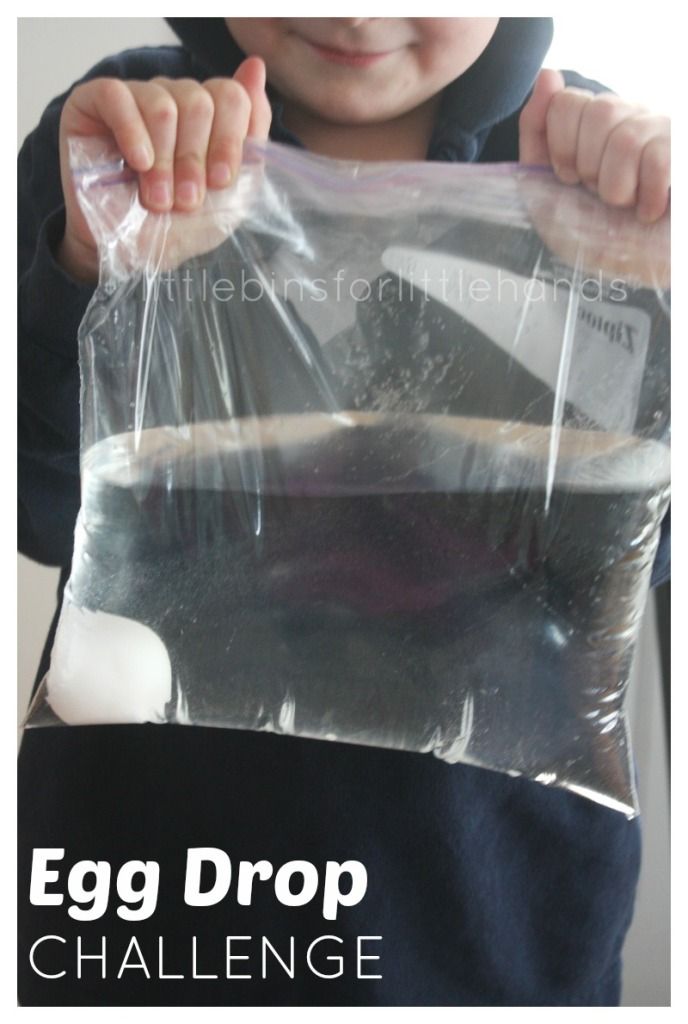
What happens if you put eggs in a bag full of water? Have students hypothesize whether the eggs will break based on how much water is in the bag.
Try it: Water Bag Egg Drop at Oregon State University
20. Reinforcement egg drop
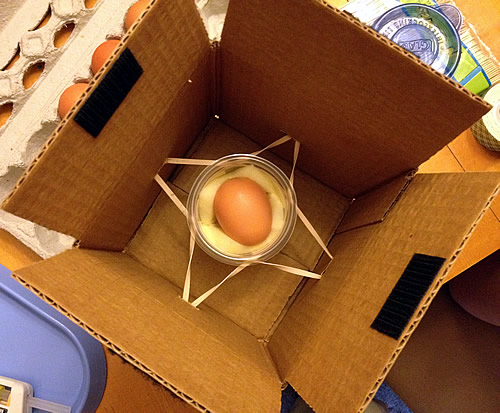
Talk about what it means to reinforce an object, then provide students with different ways to reinforce an egg in boxes or jars (or jars and boxes).
Try it: Reinforcement Egg Drop at Living Digitally
21. Floam-covered egg
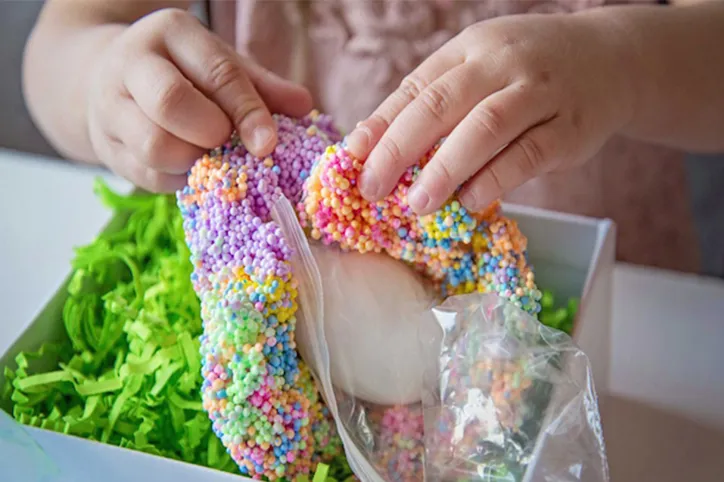
Cover an egg in floam and see if it provides enough cushioning to break the fall. If you don’t have floam, you can also try kinetic sand, play dough, or anything that will cover the egg and absorb the impact.
Try it: Floam Egg Drop at Momtastic
22. Peanut butter jar egg drop
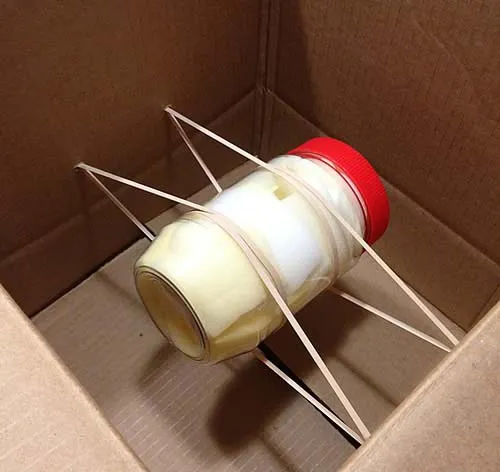
Tuck an egg in a peanut butter jar, pack it with tissues, and secure in a box.
Try it: Peanut Butter Jar Egg Drop at Momtastic
23. Balloon bomb egg drop
Surround the egg in balloons filled with beads to provide a softer landing.
24. Another balloon bomb
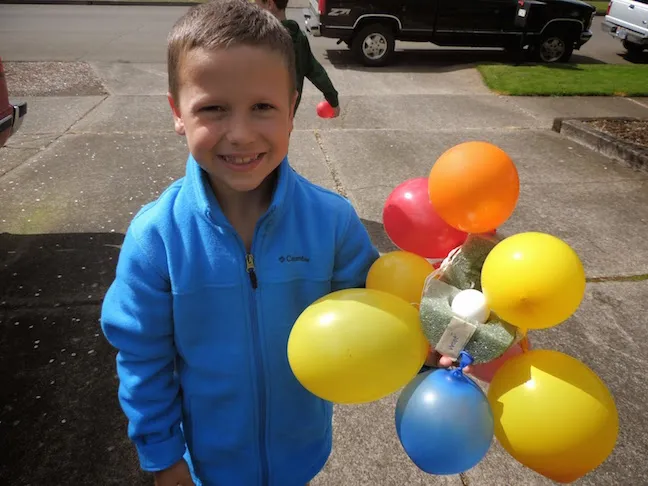
Hollow out a floral foam disc and tuck the egg inside. Then, add balloons to soften the landing.
Try it: Balloon Bomb Egg Drop at The Caffeinated Homeschoolista
25. Bungee egg drop
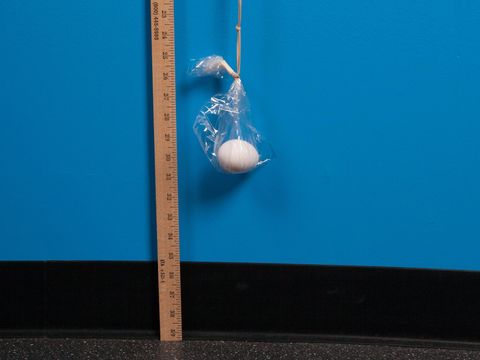
This activity isn’t an egg drop, per say. Students use rubber bands to create a bungee jump for an egg and predict how many rubbers bands they will need for the egg to drop a certain length (maybe six feet). For students who are well versed in the egg drop, this is a fun spin on the idea.
Try it: Bungee Egg Drop at Museum of Science and Industry
26. Backyard egg drop
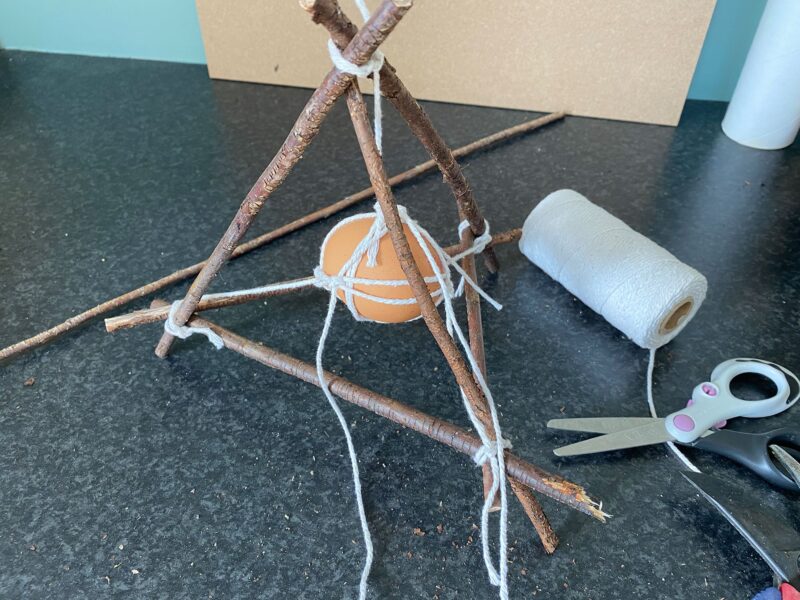
Looking for ideas to make the egg drop project more challenging? Ask students to find materials in nature—sticks, leaves, an abandoned bird’s nest—to create their egg drop structures.
Try it: Nature Egg Drop at Dream Big at Home

